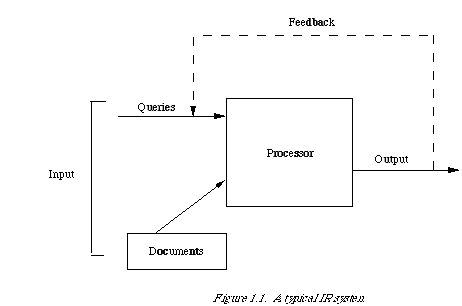|
|
7 |
|
|
|
|
systems store only a representation of the document (or query) which means that the text of a document is lost once it has been processed for the purpose of generating its representation. A document representative could, for example, be a list of extracted words considered to be significant. Rather than have the computer process the natural language, an alternative approach is to have an artificial language within which all queries and documents can be formulated. There is some evidence to show that this can be effective (Barber et al.[6]). Of course it presupposes that a user is willing to be taught to express his information need in the language.
When the retrieval system is on-line, it is possible for the user to change his request during one search session in the light of a sample retrieval, thereby, it is hoped, improving the subsequent retrieval run. Such a procedure is commonly referred to as feedback. An example of a sophisticated on-line retrieval system is the MEDLINE system (McCarn and Leiter[7]). I think it is fair to say that it will be only a short time before all retrieval systems will be on-line.
Secondly, the processor, that part of the retrieval system concerned with the retrieval process. The process may involve structuring the information in some appropriate way, such as classifying it. It will also involve performing the actual retrieval function, that is, executing the search strategy in response to a query. In the diagram, the documents have been placed in a separate box to emphasise the fact that they are not just input but can be used during the retrieval process in such a way that their structure is more correctly seen as part of the retrieval process. |
|
|
7 |
|
|
|
